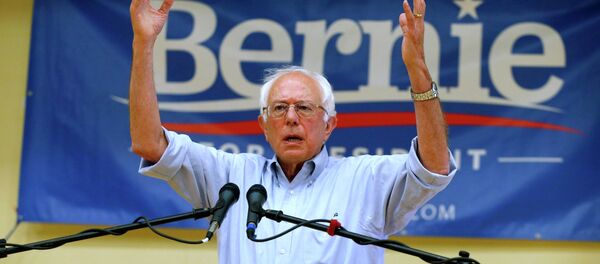“If he would have won New York, he could have gained some momentum and picked up some of these states in the east, but these states have closed primaries just like New York has,” Sacks said. “Clinton has a big lead in Maryland. She’ll probably extend her delegate lead, making the math more and more difficult for Sanders for moving forward.”
However, the expectation that Sanders’ leftist supporters would “flock” to Clinton in case of his loss, says Sacks, is a mistake. The base of Sanders’ movement is grassroots and radical, seeking a “political revolution” that doesn’t resonate with Clinton’s image.
“Forty percent of voters in New York who are Sanders’ voters said they would not vote for Clinton. That’s a major problem for the Democratic Party,” Sacks assumed. “They can’t get the young voters of the Sanders’ supporters. Of course they can get many, but they can’t get a lot of them.”
“These guys [Koch brothers] are not idiots. They know how to spend money; how to throw their money when they can maximize their returns. And they all seem to be lining up with Clinton. It says a lot about the way she plans to govern.”
Americans, tired of endless wars since 2001, are starving for a “peace candidate” for president. Clinton, who appears to be a hawk in Sacks’ view, is losing to Republican Donald Trump, who distanced himself from a row of notorious US military interventions.
If Sanders lost the Democratic nomination, millions of his voters could opt out from supporting Clinton, possibly seeking another candidate, Sacks opined. It could result in the emergence of a third party that could approach a 15 percent threshold to present a candidate at an election.
“I think Jill Stein is still in the race among libertarians. I see Bernie supporters more flocking to the Green Party and Jill Stein,” Sacks said.






